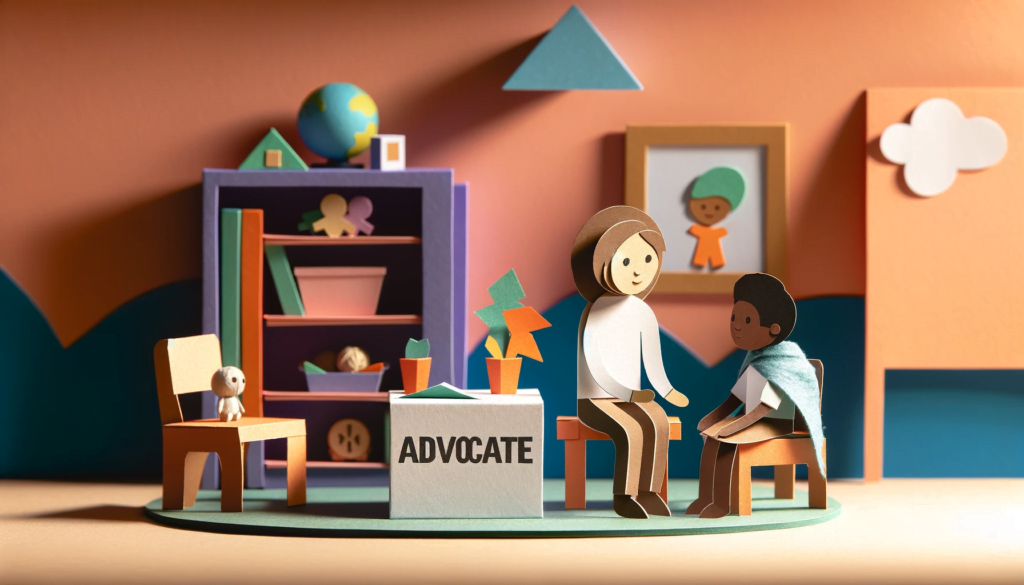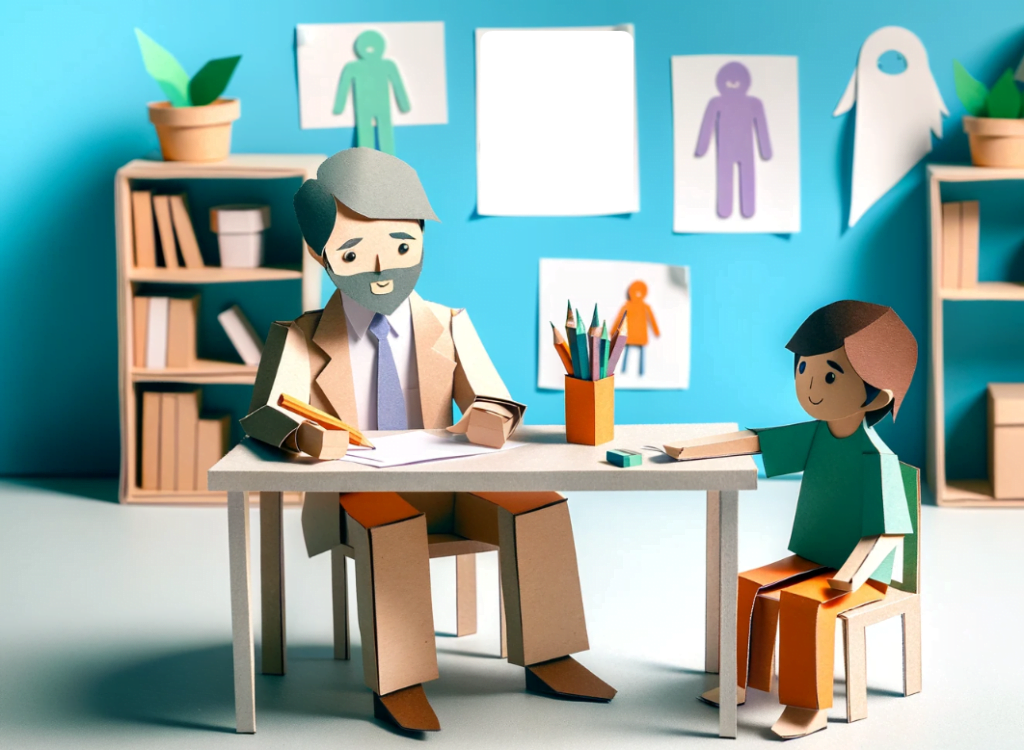The pros of being a CASA volunteer are receiving excellent training with ongoing backup, gaining skills in teamwork, collaboration, and negotiation, learning extensively about child welfare, and receiving substantial support, including a CASA staff coordinator and continuing education opportunities.
The cons of being a CASA volunteer are navigating a bureaucratic and overburdened child welfare system, experiencing disappointments due to court decisions and social service plans, and dealing with challenges in a poorly run program where staff and volunteers may feel underappreciated.
Is being a casa volunteer dangerous?
Being a CASA volunteer is generally safe, as they are not required to enter any house, neighborhood, or meeting where they feel uncomfortable, and there are established protocols to ensure their safety and to report any incidents of danger or child abuse.
Takeaways:
- Being a CASA (Court Appointed Special Advocate) volunteer offers a nurturing work environment, gratification from impacting children’s lives, a sense of purpose, and collaboration with dedicated colleagues.
- The cons include the part-time nature of the role, modest compensation, demanding work hours, and emotional strain from child-parent separation.
- CASA volunteers provide a safe environment, positively influence children’s lives, improve child-guardian relationships, and navigate the Juvenile Court process.
- The role demands a substantial time commitment, involving research, court hearings, meetings with children, collaboration with professionals, and coping with emotional challenges from difficult situations.
Court Appointed Special Advocates (CASA): Quick Facts & Insights
- 2000 Statistics: Approximately 58,600 CASA volunteers represented 229,000 children.
- Virginia (2021-22): 1,328 volunteers provided advocacy for 3,176 children.
- Indiana (2022): 3,454 active volunteers, 20,091 children represented, 509 new volunteers trained.
- Role: CASA volunteers are appointed by judges to advocate for the best interests of abused and neglected children in court and other settings.
- Child Adoption Impact: Children with CASA volunteers were more likely to be adopted.
- Compensation: CASA volunteers are not paid. They are citizens volunteering their time for child safety and well-being.
Gender Breakdown:
- Arizona: 85% female, 15% male volunteers.
Popularity by State:
- National Reach: 950 state and local programs across the U.S.
Training and Commitment:
- Training Requirement: 30-hour pre-service training.
- Time Commitment: Around 15 hours per month on average per case.
- Case Duration: Volunteers typically dedicate themselves to a case until closure, averaging about a year and a half.
Sources:
- Court Appointed Special Advocates (CASAs): A Review of Their Effectiveness
- Court Appointed Special Advocate Program (CASA) – Virginia
- Indiana GAL/CASA Local Program Directory
- Volunteer as a Court Appointed Special Advocate (CASA) – Arizona
- CASA/GAL Volunteers Bring Stability While Advocating for Youth in Foster Care
- EVALUATION OF CASA REPRESENTATION Research Summary – Office of Children
- CASA of Arizona – Court Appointed Special Advocates – Volunteers Needed
- Child Welfare Statistics: Arizona Children in Out-of-Home Care
(These statistics are based on available data and may vary across different states and years. For the most accurate and up-to-date information, please refer to specific CASA programs.)
| Pros of Being a CASA Volunteer | Cons of Being a CASA Volunteer |
|---|---|
| Excellent Training | Bureaucratic Challenges |
| Strong Support System | Emotional Disappointments |
| Learning and Personal Growth | Issues with Program Management |
| Making a Real Difference | Time Commitment |
| Increased Adoption Rates | Emotional Toll |
| Rich Community Engagement | Limited Influence |
| Personal Satisfaction | Complexity of Cases |
| Development of Advocacy Skills | Learning Curve |
| Broadening Perspectives | Risk of Burnout |
| Networking Opportunities | Dependency on Volunteer Effort |
Pros of Being a CASA Volunteer

- Excellent Training: CASA volunteers benefit from comprehensive training, ensuring they are well-prepared for their roles. This 30-hour pre-service training equips them with the necessary skills and knowledge to effectively advocate for children in the welfare system. This thorough preparation is crucial for volunteers to understand the complexities of the cases they will handle.
- Strong Support System: Volunteers receive ongoing support from a CASA staff coordinator, which is invaluable in navigating the challenging scenarios they encounter. This support includes guidance, resources, and continuing education opportunities, helping volunteers to remain effective and motivated in their advocacy efforts. This system ensures that volunteers are not left to manage difficult situations on their own.
- Learning and Personal Growth: Being a CASA volunteer offers a significant learning opportunity, particularly in understanding child welfare and legal systems. This role provides a unique perspective on social issues, offering personal growth and a deeper understanding of societal challenges. Such experience can be enriching both personally and professionally.
- Making a Real Difference: CASA volunteers have a tangible impact on the lives of individual children. By advocating for a child’s best interests in court and other settings, they play a crucial role in the child’s future. The knowledge that their efforts can lead to better outcomes for these children is immensely gratifying.
- Increased Adoption Rates: Children with CASA volunteers are more likely to be adopted, indicating a positive impact on the child welfare system. This outcome is a testament to the effectiveness of CASA volunteers in helping to find stable, loving homes for children in need. Volunteers contribute to breaking the cycle of abuse and neglect.
- Rich Community Engagement: CASA volunteering provides an opportunity to engage deeply with the community and understand its diverse needs. This engagement fosters a sense of belonging and connection, making volunteers integral members of their community. It is a chance to work closely with various stakeholders, including the legal system, social services, and families.
- Personal Satisfaction: The role offers immense personal satisfaction, knowing that one’s efforts directly benefit vulnerable children. This sense of fulfillment is a significant motivating factor for many volunteers, driving them to continue their advocacy work. It’s rewarding to know that their dedication can change a child’s life trajectory.
- Development of Advocacy Skills: CASA volunteers develop strong advocacy skills, learning to navigate complex systems and effectively represent a child’s interests. These skills are transferable to many aspects of life, including professional and personal realms. They learn to communicate effectively, negotiate, and understand legal procedures.
- Broadening Perspectives: Volunteers gain a broader perspective on social issues, particularly those affecting children and families. This expanded worldview is invaluable in fostering empathy and understanding within the community. It encourages a more informed and compassionate approach to societal challenges.
- Networking Opportunities: Volunteering with CASA provides networking opportunities with professionals in various fields, including law, social work, and child advocacy. These connections can be beneficial for career advancement or for seeking guidance and collaboration in other community projects.
Cons of Being a CASA Volunteer

- Bureaucratic Challenges: The child welfare system is often bureaucratic and overburdened, making it difficult for volunteers to navigate. CASA volunteers frequently encounter red tape and slow processes, which can be frustrating and hinder their ability to effectively advocate for children. This bureaucracy can lead to delays in decision-making and case resolution.
- Emotional Disappointments: Volunteers may face significant emotional challenges, including disappointments from court decisions or social service plans that don’t align with their advocacy efforts. These setbacks can be disheartening, especially when volunteers have invested significant time and emotion into a case. Coping with such disappointments is an ongoing challenge.
- Issues with Program Management: Some CASA programs may suffer from poor management, affecting the volunteers’ ability to perform their roles effectively. Issues such as lack of appreciation, inadequate resources, or organizational problems can demotivate volunteers and impact the quality of advocacy provided to children.
- Time Commitment: The role requires a substantial time commitment, with volunteers expected to dedicate approximately 15 hours a month on a case. This commitment can be challenging to balance with personal and professional responsibilities, particularly as some cases can last about a year and a half.
- Emotional Toll: Working closely with cases of abuse and neglect can take an emotional toll on volunteers. They are often exposed to distressing situations and stories, which can lead to emotional fatigue or secondary traumatic stress. Managing these emotional aspects is crucial for the well-being of volunteers.
- Limited Influence: Despite their best efforts, volunteers may find that their influence in the legal and welfare systems is limited. They must work within the confines of the system, which can be frustrating when they see opportunities for better outcomes that are not pursued due to systemic limitations.
- Complexity of Cases: The cases that CASA volunteers handle are often complex and involve navigating intricate family dynamics and legal intricacies. Understanding and effectively managing these complexities require patience and perseverance, which can be challenging for volunteers.
- Learning Curve: The initial learning curve for new volunteers can be steep, despite the comprehensive training. Understanding the nuances of the child welfare system and legal procedures takes time and experience, which can be daunting for newcomers.
- Risk of Burnout: Due to the emotional and time demands of the role, there is a significant risk of burnout among CASA volunteers. Managing this risk requires continuous support and the ability to set personal boundaries, which is not always easy in such a committed role.
- Dependency on Volunteer Effort: The success of the CASA program heavily relies on the dedication and effort of volunteers, which can be a double-edged sword. While this highlights the importance of their role, it also places a heavy burden on volunteers, as the system might struggle without their unpaid, committed advocacy.
Impact on Child’s Life

An individual’s decision to become a CASA volunteer can significantly impact a child’s life in various ways. CASA, Court Appointed Special Advocates, provide a safe and nurturing environment for children who have experienced abuse or neglect. By volunteering for CASA, individuals have the opportunity to positively influence a child’s life by offering support, guidance, and advocacy throughout the often daunting and confusing legal process.
The involvement of a CASA volunteer often leads to improved relationships between the child and their guardians, as the volunteer acts as a consistent and caring presence in the child’s life.
Furthermore, CASA volunteers play a crucial role in navigating the Juvenile Court process, ensuring that the child’s rights are protected and their best interests are represented. By advocating for the child’s needs and well-being, volunteers can significantly impact the trajectory of a child’s life, providing them with a voice and support during a challenging time.
The impact of a CASA volunteer’s involvement can be profound, potentially shaping a child’s future and contributing to their overall well-being and safety.
Time Commitment

Volunteers for CASA must be prepared for a significant time commitment due to the demanding work hours and emotional toll involved in advocating for children. The nature of the work often requires volunteers to invest substantial time in researching, attending court hearings, meeting with the children, and collaborating with caseworkers, attorneys, and other professionals involved in the child welfare system. Furthermore, the emotional toll of witnessing the difficult circumstances that children endure and the complexities of their cases can be draining. These factors contribute to the overall time commitment required of CASA volunteers.
The time commitment can impact various aspects of a volunteer’s life, including work-life balance and personal pursuits. It is essential for prospective volunteers to assess their availability and willingness to dedicate the necessary time before committing to this role. However, many volunteers find the sense of fulfillment and purpose in helping children in challenging situations to be a motivating factor that offsets the demands on their time.
The training and support provided by CASA staff help volunteers navigate the time commitment and the emotional challenges, ensuring they are equipped to make a meaningful difference in the lives of children.
Advocacy Challenges

Navigating the complexities of the child welfare system presents significant challenges for CASA advocates. These challenges can be daunting and require a high level of skill and dedication to overcome. Some of the advocacy challenges include:
- Scrutiny and Lack of Training: CASA volunteers often face scrutiny from various stakeholders, including the court, child welfare agencies, and even the families they are trying to help. Additionally, limited training can make it difficult for advocates to navigate the intricacies of the system effectively.
- Bureaucratic Nature: The bureaucratic nature of the child welfare system can be overwhelming for advocates. Navigating through the red tape, understanding policies and procedures, and advocating for the best interest of the child within this framework can be challenging.
- Emotional Toll: Cases involving the separation of children from their parents can take an emotional toll on CASA advocates. Witnessing the impact of these situations on children and families can be deeply distressing.
- Cultural Competence and Conflict of Interest: Advocates may encounter challenges related to cultural competence and awareness, as well as managing potential conflicts of interest when dealing with the Juvenile Court process.
Addressing these challenges requires ongoing support, training, and resources for CASA advocates to effectively fulfill their crucial role in the child welfare system.
Emotional Rewards

The emotional rewards of being a Casa volunteer are multifaceted and deeply impactful.
From witnessing the positive changes in families to making a significant difference in the lives of children, volunteers experience a sense of personal fulfillment that comes from knowing they are contributing to the well-being of their community.
Moreover, the meaningful connections formed with the children and the sense of purpose derived from putting education into practice further enhance the emotional rewards of being a Casa volunteer.
Impact on Children
Being a Casa volunteer provides a unique opportunity for impacting children emotionally and fostering positive changes in their lives. By being involved in a child’s life, Casa volunteers can make a significant impact on their emotional well-being and overall development. Here are some ways Casa volunteers can positively impact children:
- Providing emotional support and stability during difficult times.
- Advocating for the child’s needs and best interests in court and other settings.
- Building trust and rapport with the child, which can lead to improved self-esteem and confidence.
- Helping children navigate the complexities of the legal system, providing reassurance and guidance throughout the process.
Through these efforts, Casa volunteers can contribute to creating a safe and nurturing environment for children, ultimately leading to positive changes in their lives.
Personal Fulfillment

CASA volunteers derive significant emotional fulfillment from their work. The sense of purpose and fulfillment derived from positively impacting the lives of children and families is a major emotional reward.
The opportunity to contribute to the community and support those in need creates a deep sense of personal fulfillment.
Furthermore, the ability to provide a safe and nurturing environment for children in difficult situations leads to a profound emotional reward for CASA volunteers.
The positive changes witnessed in the lives of the children and families they assist also contribute to the emotional fulfillment experienced by CASA volunteers.
Meaningful Connections
CASA volunteers experience a profound emotional connection with coworkers, volunteers, and community members, fostering a sense of purpose and fulfillment in their meaningful work.
This emotional reward comes from witnessing positive changes in the lives of children and families, and from connecting with other volunteers who share a common goal of helping children in difficult situations.
The meaningful connections forged in this role lead to a deeper understanding of the impact of CASA’s involvement on the lives of the children they serve.
Through these connections, volunteers also find a sense of fulfillment and purpose, knowing that they are making a tangible difference in their community.
This emotional support network further enhances the overall experience of being a CASA volunteer.
Legal System Navigation

When serving as a CASA volunteer, understanding courtroom etiquette, legal jargon, and efficiently navigating court paperwork are essential skills for effectively advocating for abused and neglected children.
Courtroom etiquette tips help volunteers present themselves professionally and respectfully, while understanding legal jargon allows for clear communication and comprehension within the legal system.
Navigating court paperwork efficiently ensures that volunteers can manage and process necessary documents effectively, contributing to the overall success of their advocacy efforts.
Courtroom Etiquette Tips
Navigating the courtroom requires a keen understanding of legal protocol and decorum. When advocating for children as a CASA volunteer, it’s essential to adhere to courtroom etiquette to effectively support their best interests.
Here are some key tips to navigate the courtroom successfully:
- Dress professionally: Wear appropriate attire to convey respect for the court proceedings.
- Maintain composure: Stay composed and attentive during the proceedings to demonstrate professionalism and respect.
- Follow courtroom rules: Adhere to the courtroom’s rules and guidelines, such as when to speak and when to remain silent.
- Show respect to all parties: Treat everyone in the courtroom with courtesy and respect, including judges, attorneys, and other involved parties.
Adhering to these etiquette tips will help CASA volunteers effectively navigate the legal system and advocate for the children they serve.
Understanding Legal Jargon
Volunteers at CASA gain valuable insight into the legal system by familiarizing themselves with legal jargon and navigating court procedures. This understanding allows them to effectively advocate for children within the legal system.
By learning the language and processes of the court, volunteers can ensure that the best interests of the child are represented. Understanding legal jargon also enables volunteers to communicate with legal professionals, ensuring that they can effectively collaborate and advocate for the child in court.
Moreover, this knowledge empowers volunteers to educate the children they support about their legal rights and the implications of their situations.
Ultimately, the ability to navigate legal procedures and understand legal terminology equips CASA volunteers to provide crucial support and advocacy within the juvenile court system.
Navigating Court Paperwork Efficiently
The understanding of legal jargon and court procedures acquired by CASA volunteers equips them with the necessary skills to navigate court paperwork efficiently, ensuring the best representation of the child’s best interests within the legal system. This proficiency in navigating court paperwork is vital for the successful advocacy of the child within the legal system.
Here are some essential skills and benefits related to navigating court paperwork efficiently:
- Familiarity with Legal Forms: CASA volunteers gain expertise in understanding and completing various legal forms required for court proceedings.
- Timely Submission: Volunteers are trained to ensure that all court paperwork is submitted accurately and within stipulated deadlines.
- Legal System Navigation: They develop the ability to navigate through the legal system, ensuring that the child’s interests are effectively represented.
- Attention to Detail: Volunteers pay meticulous attention to detail, ensuring that all paperwork is completed accurately and comprehensively.
Support Network

One can appreciate the invaluable support network provided by CASA, which plays a crucial role in empowering volunteers to advocate for abused and neglected children.
CASA ensures that volunteers are not alone in their advocacy efforts by providing a supportive community and comprehensive training. This network eases initial reservations and uncertainties, enabling new volunteers to navigate the complexities of advocating for children effectively.
Furthermore, CASA’s involvement in improving relationships with families showcases the strength of its support network and the advocacy provided by volunteers. The organization’s commitment to cultural competence and awareness further enhances its support network, offering volunteers the necessary education and support to navigate diverse and challenging situations.
CASA recruits, trains, and supervises volunteers, ensuring ongoing support and guidance for those advocating for abused and neglected children. This comprehensive support network empowers volunteers, ultimately leading to better outcomes for the children they serve.
Personal Growth
Navigating the complexities of advocating for abused and neglected children as a CASA volunteer often leads to profound personal growth. The experience presents various challenges and opportunities that contribute to the volunteer’s personal development and resilience.
- Empathy and Compassion: Engaging with the difficult circumstances faced by abused and neglected children fosters a deeper sense of empathy and compassion. Volunteers learn to understand and connect with the emotions and experiences of the children they advocate for, broadening their capacity for empathy.
- Professional and Personal Development: Volunteers have the opportunity to apply their education and professional skills to real-life situations, enhancing their expertise and personal development. The experience of working within the legal and child welfare systems offers valuable insights and growth opportunities.
- Resilience and Adaptability: Dealing with the emotional toll of the cases, including the separation of children from their families, challenges volunteers to develop resilience and adaptability. They learn to navigate complex and emotionally demanding situations, fostering personal growth and strength.
- Self-Reflection and Fulfillment: The process of advocating for children in difficult circumstances often leads to self-reflection and a sense of fulfillment. Volunteers experience personal growth as they reflect on their values, priorities, and the impact they are making in the lives of vulnerable children.
Frequently Asked Questions
Impact of CASA Volunteering on Personal Life?
Can be demanding and emotionally taxing, but offers fulfillment and personal growth.
Misconceptions About CASA Volunteers?
Misunderstood as inadequately trained and ineffective, but in reality, they are dedicated and impactful.
CASA Volunteers Overcoming Cultural Barriers?
Through training in cultural competence and awareness, ensuring effective advocacy and child well-being.
Emotional Challenges for CASA Volunteers?
Facing empathy fatigue and stress, countered by support, self-care, and trauma-informed care training.
CASA Volunteering’s Insight into Foster Care and Policies?
Offers deep understanding of the system and policies through direct case involvement and legal navigation.










